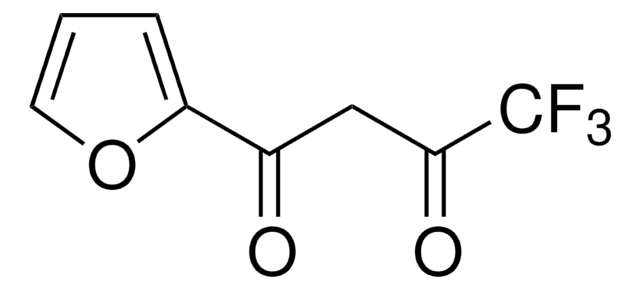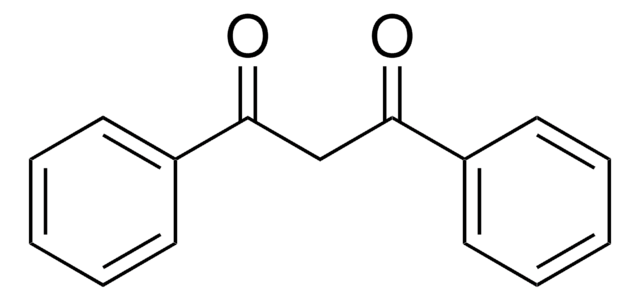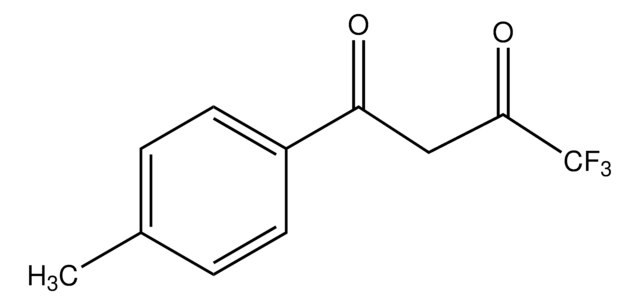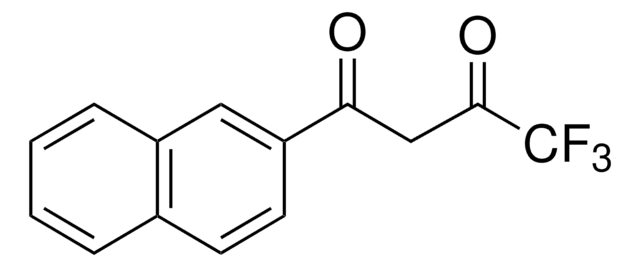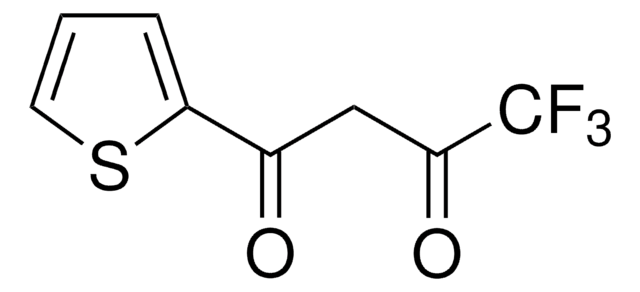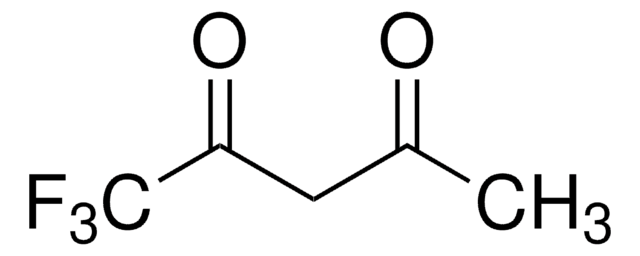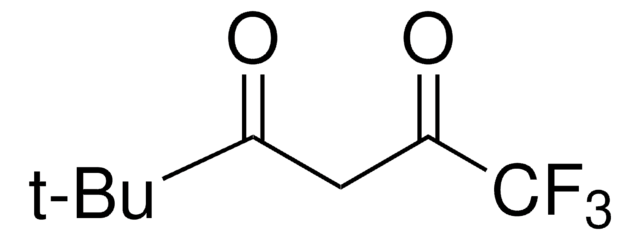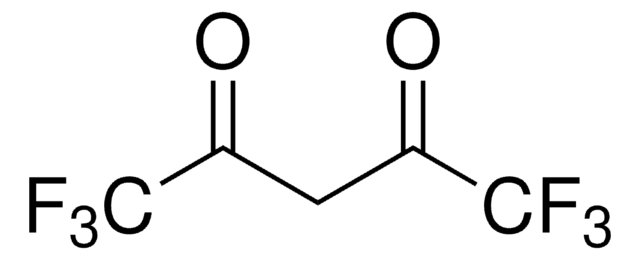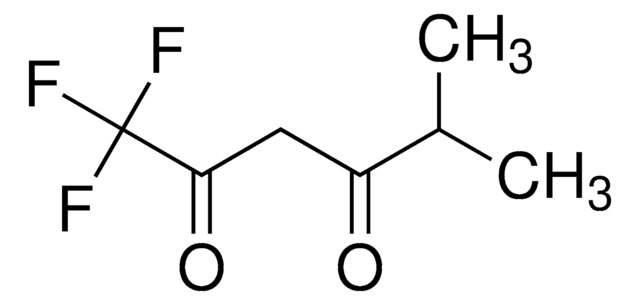217042
4,4,4-Trifluoro-1-phenyl-1,3-butanedione
99%
Synonym(s):
BTA
Sign Into View Organizational & Contract Pricing
All Photos(1)
About This Item
Linear Formula:
C6H5COCH2COCF3
CAS Number:
Molecular Weight:
216.16
EC Number:
MDL number:
UNSPSC Code:
12352100
PubChem Substance ID:
NACRES:
NA.22
Recommended Products
Quality Level
Assay
99%
form
solid
bp
224 °C (lit.)
mp
38-40 °C (lit.)
solubility
95% ethanol: soluble 25 mg/mL, clear, colorless to yellow
functional group
fluoro
ketone
phenyl
SMILES string
FC(F)(F)C(=O)CC(=O)c1ccccc1
InChI
1S/C10H7F3O2/c11-10(12,13)9(15)6-8(14)7-4-2-1-3-5-7/h1-5H,6H2
InChI key
VVXLFFIFNVKFBD-UHFFFAOYSA-N
Related Categories
Application
4,4,4-Trifluoro-1-phenyl-1,3-butanedione was used in the synthesis of series of NNO ketoimines bearing trifluoromethyl substituents via Schiff base condensation reaction. It was also used in mixed-ligand chelate extraction of trivalent lanthanides and as a ligand in the preparation of ternary lanthanide (Ln) complexes.
Storage Class Code
11 - Combustible Solids
WGK
WGK 3
Flash Point(F)
210.2 °F - closed cup
Flash Point(C)
99 °C - closed cup
Choose from one of the most recent versions:
Already Own This Product?
Find documentation for the products that you have recently purchased in the Document Library.
Customers Also Viewed
Syntheses, crystal structures, visible and near-IR luminescent properties of ternary lanthanide (Dy3+, Tm3+) complexes containing 4, 4, 4-trifluoro-1-phenyl-1, 3-butanedione and 1, 10-phenanthroline.
Feng J, et al.
Journal of Luminescence, 128(12), 1957-1964 (2008)
Jean-Jacques Body et al.
Journal of bone oncology, 14, 100212-100212 (2019-01-11)
Bone metastases (BMs) are common in patients with prostate cancer and can lead to skeletal-related events (SREs), which are associated with increased pain and reduced quality of life (QoL). Bone-targeted agents (BTAs), such as zoledronic acid and denosumab, reduce the
Catarina Xavier et al.
Forensic science international. Genetics, 48, 102336-102336 (2020-07-04)
Forensic DNA phenotyping is gaining interest as the number of applications increases within the forensic genetics community. The possibility of providing investigative leads in addition to conventional DNA profiling for human identification provides new insights into otherwise "cold" police investigations.
Meixia Shan et al.
Science advances, 4(9), eaau1698-eaau1698 (2018-09-27)
The development of new membranes with high H2 separation performance under industrially relevant conditions (high temperatures and pressures) is of primary importance. For instance, these membranes may facilitate the implementation of energy-efficient precombustion CO2 capture or reduce energy intensity in
Leire Palencia-Madrid et al.
Genes, 11(6) (2020-07-02)
The study of DNA to predict externally visible characteristics (EVCs) and the biogeographical ancestry (BGA) from unknown samples is gaining relevance in forensic genetics. Technical developments in Massively Parallel Sequencing (MPS) enable the simultaneous analysis of hundreds of DNA markers
Our team of scientists has experience in all areas of research including Life Science, Material Science, Chemical Synthesis, Chromatography, Analytical and many others.
Contact Technical Service